German music veteran Harald Grosskopf has lived a wonderfully busy life, working with noted fellow countrymen like Klaus Schulze, Manuel Göttsching, Eberhard Kranemann, Udo Hanten, Lutz Ulbrich, Steve Baltes, Thorsten Quäschning and Axel Heilhecker.
As well as the drumming for of WALLENSTEIN, THE COSMIC JOKERS and ASH RA TEMPEL, he is a respected solo artist whose 1980 debut album ‘Synthesist’ is now held up as an exemplary electronic work of the period; fans of the record have included Andy McCluskey, Mark Reeder and Jean-Michel Jarre.
Turning 75 this October, Harald Grosskopf celebrates the occasion by publishing his German language autobiography ‘Monsieur Séquenceur’ and releasing a brand new album ‘Strom’ on Bureau B. The album title translates from German as “electricity” and fuses his classic melodic synth sound with the virtual tools of today for a fully charged body of work.
Harald Grosskopf kindly spoke to ELECTRICITYCLUB.CO.UK about the genesis of both his book and latest music creation…
The last time we spoke, it was for the expanded 40th Anniversary edition of ‘Synthesist’ in 2020, are you happy with how it was received?
Oh yes! The limited edition was sold out in weeks.
This new album ‘Strom’ has been a while coming, how did you decide it was time for a new solo creation?
I have to go into great detail to answer this question. I am a musician, and standing still is not part of my concept. Making music is a great passion that has grown throughout my life. Finally being able to work independently in my own studio is a privilege I had to wait a long time for until it finally became a reality in 2007.
After my first solo album ‘Synthesist’, the music industry sharply declined in the 1980s, and analog studios around the world closed in large numbers. I couldn’t afford the necessary recording equipment, and the few remaining studios were expensive. When the first Atari computers with built-in MIDI hit the market, things slowly started to pick up again. But it wasn’t until the late 1990s, when it became possible to record analog audio signals with relatively affordable music software, that things really began to move forward.
In the beginning I had virtually no experience, firstly with computers and secondly the complex subject of music software. The next step was to teach myself, step by step, and to create a physical space where I could work undisturbed. A studio. It always takes me quite a while to be emotionally satisfied with a track. Thank God I’m not under any commercial production pressure.
After producing an album with KRAFTWERK founder Eberhard Kranemann in 2018, and after we toured in England and performed in China, I began to focus on my solo work again. This led first to a remix album of my second solo album ‘Oceanheart’ (Sky 1985), ‘Oceanheart Revisited’. After that, I began working on the ‘Strom’ album. The entire album was mixed and mastered in an analog studio on reel to reel tape before digitalized again to get an analog feeling.
The title is ‘Strom’ which in English means “electricity”, does it share any conceptual heritage with ‘Synthesist’?
Well, I can’t change who I am. I never work with a musical concept. I always approach things emotionally. That means, unconsciously, there may be references to ‘Synthesist’. However, I certainly don’t try to repeat myself and always allow new experiences to influence my work.
‘Bureau 39’ has already been issued online as a trailer to ‘Strom’, you have your classic sweeping synth sound on it, are you still using your old synths or have you gone for virtual?
I haven’t owned any analog equipment for a long time. I never had a large collection of it anyway. I like the quick access that music software and virtual instruments offer. This way, I can always stay in the flow of spontaneous creativity without wasting time on wiring synths and dealing with tons of processing tools. That doesn’t mean I condemn analog synths. I just don’t use them. It also makes traveling easier. I don’t need to carry much to get to the stage!
‘Blow’ is quite fierce in places?
Deep in my heart, I am still a drummer. Physical intensity is a characteristic of drumming. That’s what drives me to make tracks like these.
There is a sharp use of rhythm on this album, as can be heard on ‘Später Strom’, had there been a particular approach? Did you manually trigger on a kit and quantise or was it all mouse and screen?
Always a mix of handmade drum loops and mouse editing.
‘After The Future’ and ‘Um Pah Pah Uh’ are quite experimental and almost do away with melody, featuring unsettling voices?
I have always seen it as a reminiscence of the early days of electronic music—Stockhausen, Pierre Schaeffer, Oscar Sala, etc, to include a little bit of this direction in my solo albums to keep it alive, without falling into banal copying.
What inspired the feel of ‘Stylo Kraut’?
That began in 2018 when I did a small tour of England with Eberhard Kranemann. We were invited by John Simpson, the CEO of Dubreq Ltd in Hastings, which reissued the legendary Stylophone Mini Synthesizer from 1967 in 2007, to perform a concert in Hastings. John provided us with this little synth buzzer, the Gen X-1 model. As a thank you, I produced this track, which I continued to expand and modify in the studio over time. It is, therefore, a small monument of reverence to this tiny, magical music machine, which was already honored by John Lennon, David Bowie, and KRAFTWERK in the past.
‘Stromklang’ wouldn’t sound of place in a club, doing you feel any affinity to techno or dance culture?
I wouldn’t have a problem if my music were played in techno clubs. I first came into contact with this music when techno reached its peak in the mid-1990s. That was probably due to my age. I was approaching 50 and hadn’t been going to clubs for a long time, so this culture more or less completely passed me by until then.
Steve Baltes, a young musician whom I invited to join us on two of our ASHRA Japan tours, played me tracks that gave me goosebumps. I like this music because it resonates with my drummer’s heart, physical and simple intensity. That has certainly influenced my music-making unconsciously. However, I’m far from making techno, as generally, I don’t care about other music at all when I’m in my studio.
How have you adapted your creativity to today’s equipment and music consumption environment?
Out of necessity, I turned to creating music with computers almost 30 years ago because, as I hinted earlier, I couldn’t afford studio equipment or expensive studio costs. The rapid technological development of digital recording tools and virtual synthesizers is breathtaking. However, I am open to all techniques. For example, I mixed my last albums on magnetic tape in the studio of my friend Tobias Stock before we digitally rendered the tracks for CD and vinyl. As a result, even the CD now sounds very analog.
Over 25 years, Tobias has assembled a top-class analog studio in mint condition, which leaves nothing to be desired, and he maintains it at the highest level in his role as an electronic engineer and musician. The next step will be working with various AI tools. However, I definitely won’t be creating ‘prompt-to-music’ at the push of a button. The rejection of AI as a creative tool strongly reminds me of the incompetent reactions to the emergence of the first synthesizers in the late 1960s, early 1970s. Klaus Schulze always responded to these technology sceptics with irony: “Since when do violins grow on trees, or pianos in fields?”
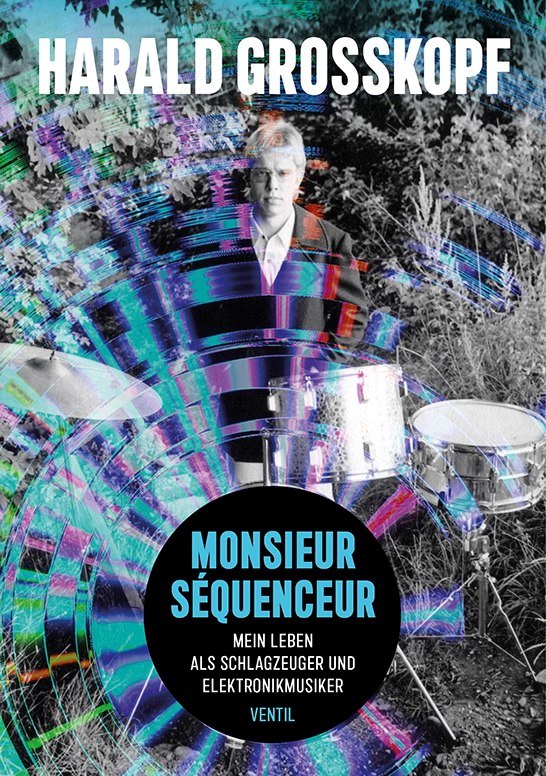 How did the idea for a book come about? Did you keep diaries or has everything been recounted from memory?
How did the idea for a book come about? Did you keep diaries or has everything been recounted from memory?
I never kept a diary. About 30 years ago, I started writing down my memories sporadically, without any intention of ever publishing them. It was more for reasons of therapeutic self-reflection. Over time, when I shared stories from my life with friends and acquaintances, I kept getting asked why I didn’t publish them. When my label, Bureau B, became economically involved with Ventil Publishing Company, and I told Gunther Buskies, the CEO of Bureau B, about my writings, everything started falling into place.
Since I originally had around 700 pages, and no one would read such a long biography, we worked with a professional editor to condense it to an acceptable length. And now, the time has come. The version, which until now has only been available in German, will be released in parallel with the ‘Strom’ album. I’m working on an English translation.
Did you have a particular memory that was jogged by a conversation or research that for various reasons, you had forgotten about?
Writing takes longer than quickly recalling images, feelings, and dialogues. When you sit down to write down memories, you have to hold the image of the memory in your mind until you’ve formulated it. This apparently has the effect of bringing back seemingly long-forgotten content, which suddenly becomes alive again, and you can hardly stop yourself from holding it in your mind in order to get it down on paper or hammer it into the computer. It could happen that I sometimes wrote for 6 or 7 hours without a break. A phenomenon that others have also reported to me.
So, would you agree that if you can remember recording with THE COSMIC JOKERS, then you weren’t actually there??? 😉
Of course, memories can deceive us, and surely our brain alters our memories as well. Memories are always fragmented and sometimes hazy. Now to your question: Yes, I can recall those Cosmic Couriers sessions in Dieter Dierks’ studio, half a century ago fairly well.
Two of your most esteemed colleagues Klaus Schulze and Manuel Göttsching are sadly no longer with us, has this had any bearing on how you have approached the book or the album?
No, because I had already written everything related to the two of them during their lifetimes.
What is next for you?
The mastering of the next solo album, titled ‘Glitches Brew’, which will be released in the second half of 2025 on Bureau B. Two more albums featuring collaborations with other artists are also completed. We are still looking for a label for one of these albums. The second one of this kind will be released in March 2025 on the English DIN label. I am not yet allowed to reveal the title and protagonists. Additionally, I am already working on a third solo album and video projection materials for future live performances.
ELECTRICITYCLUB.CO.UK gives its sincerest thanks to Harald Grosskopf
Additional thanks to Sean Newsham at Bureau B
‘Strom’ is released by Bureau B on 18 October 2024 in CD and vinyl LP formats, available from https://shop.tapeterecords.com/records/bureau-b/
Download available from https://haraldgrosskopf.bandcamp.com/
Harald Grosskopf’s memoir ‘Monsieur Séquenceur’ is published in German by Ventil Verlag, available from https://www.ventil-verlag.de/titel/1967/monsieur-sequenceur
https://www.haraldgrosskopf.de/
https://www.facebook.com/Harald-Grosskopf-121526524593386/
https://www.instagram.com/harald_grosskopf/
https://open.spotify.com/artist/1yejR2Tszo9sGMXtmuq07K
Text and Interview by Chi Ming Lai
Photos by Markus Luigs
27 September 2024

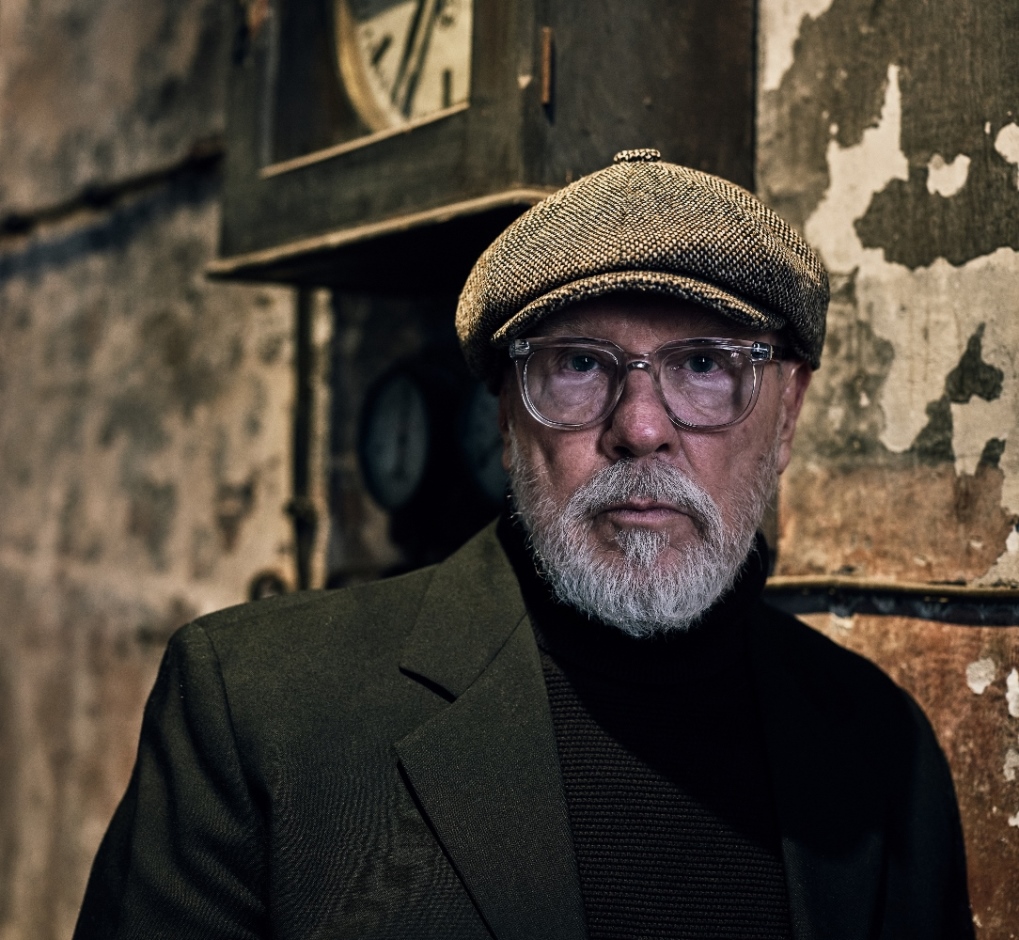
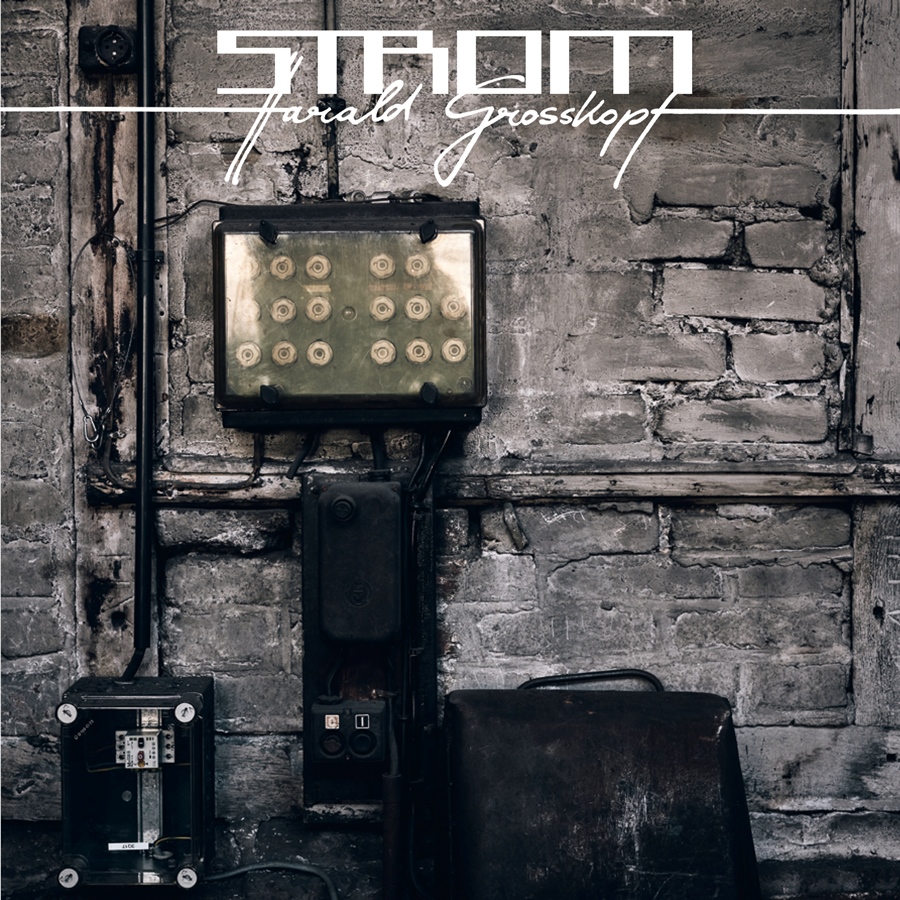
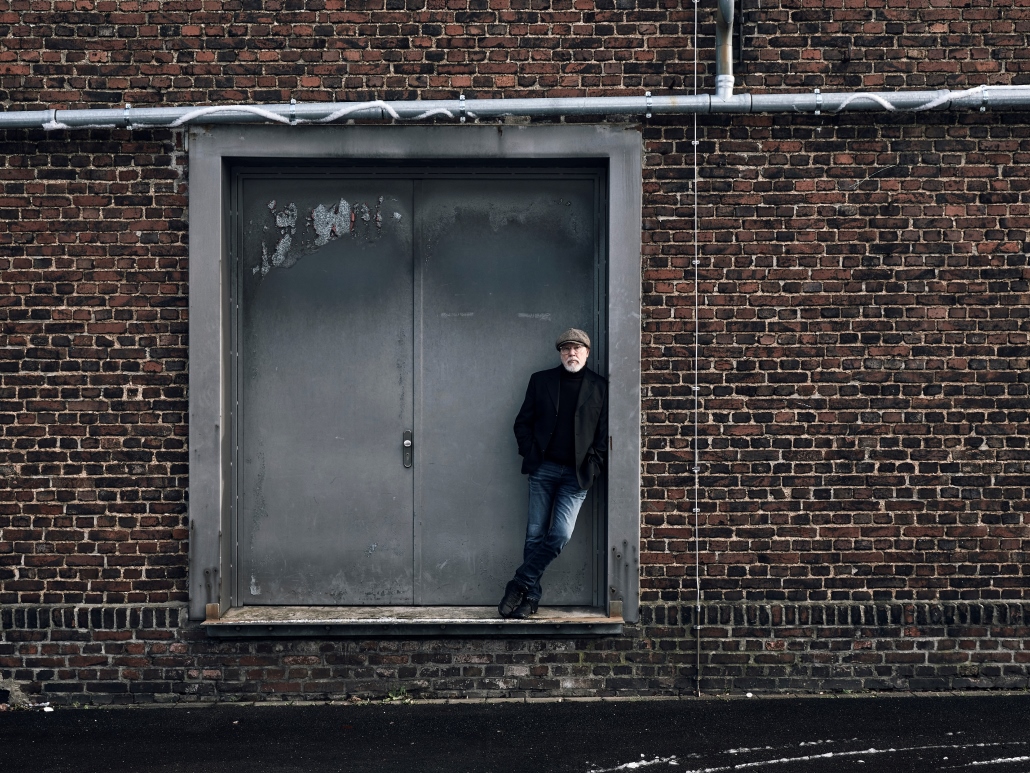
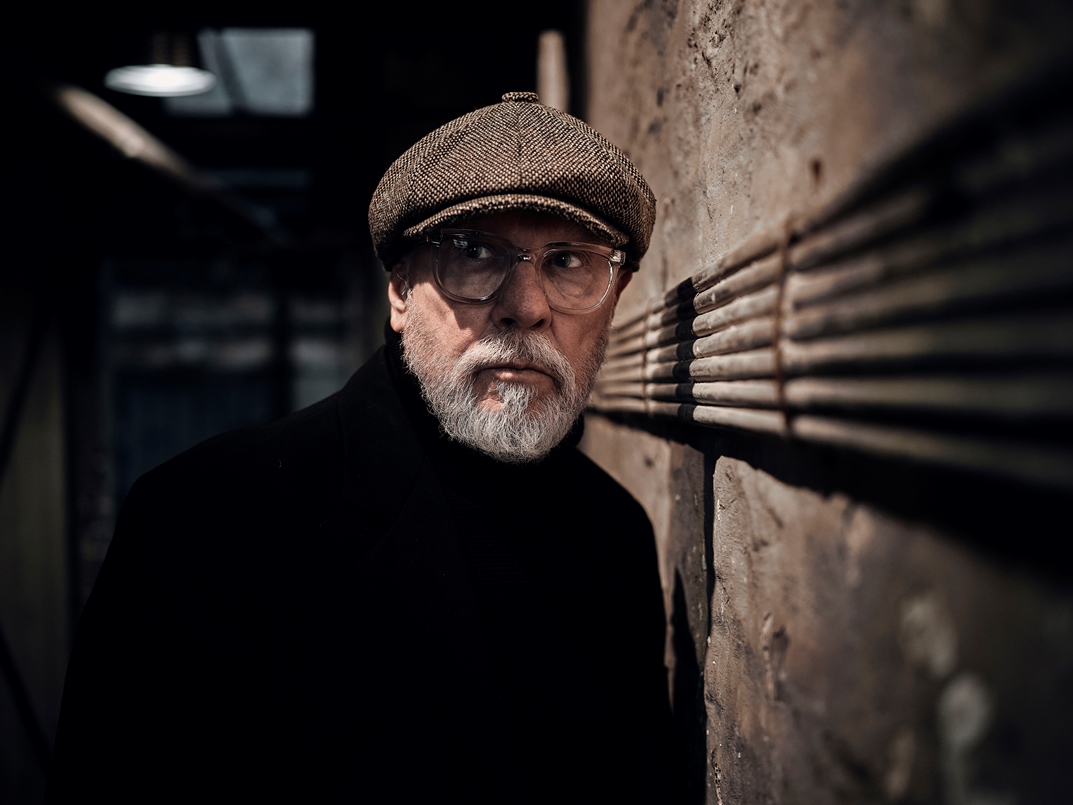
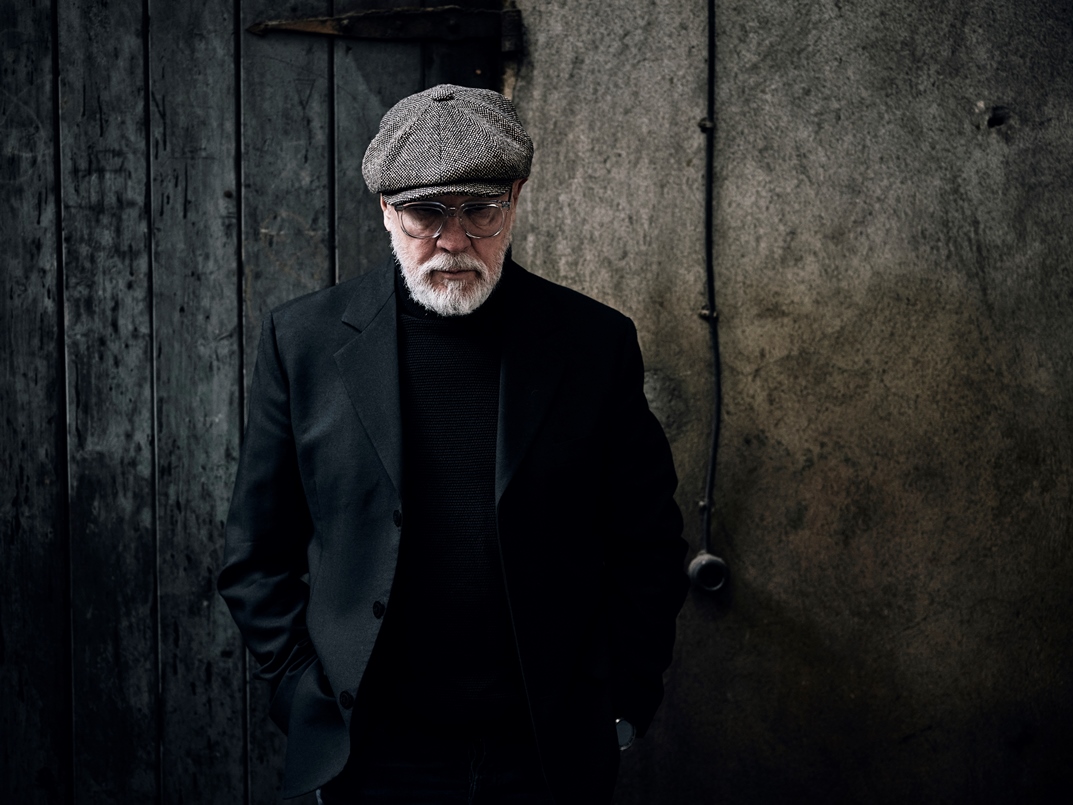
Follow Us!